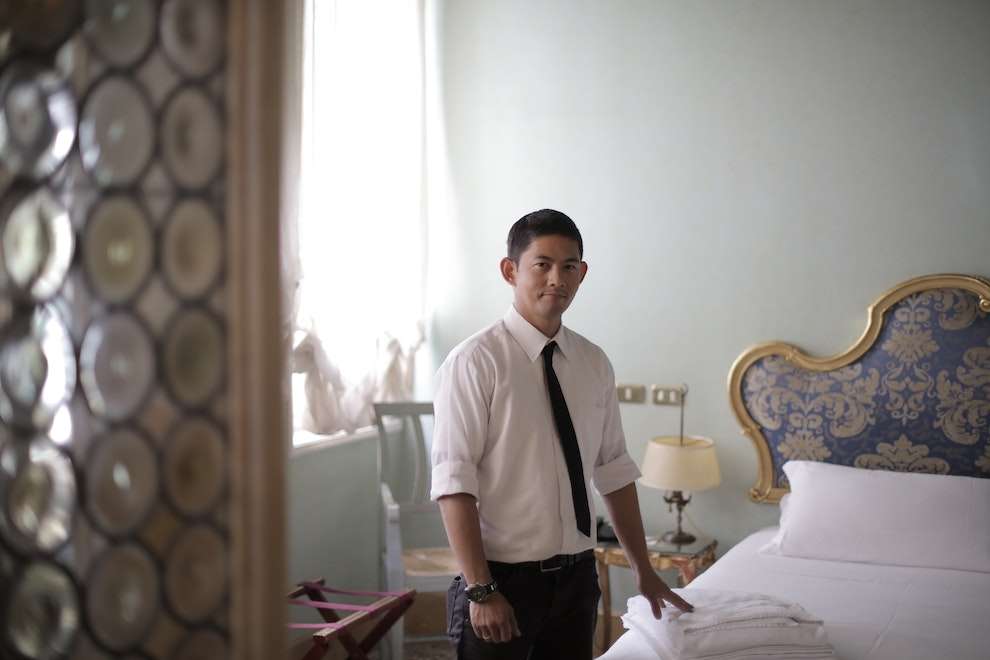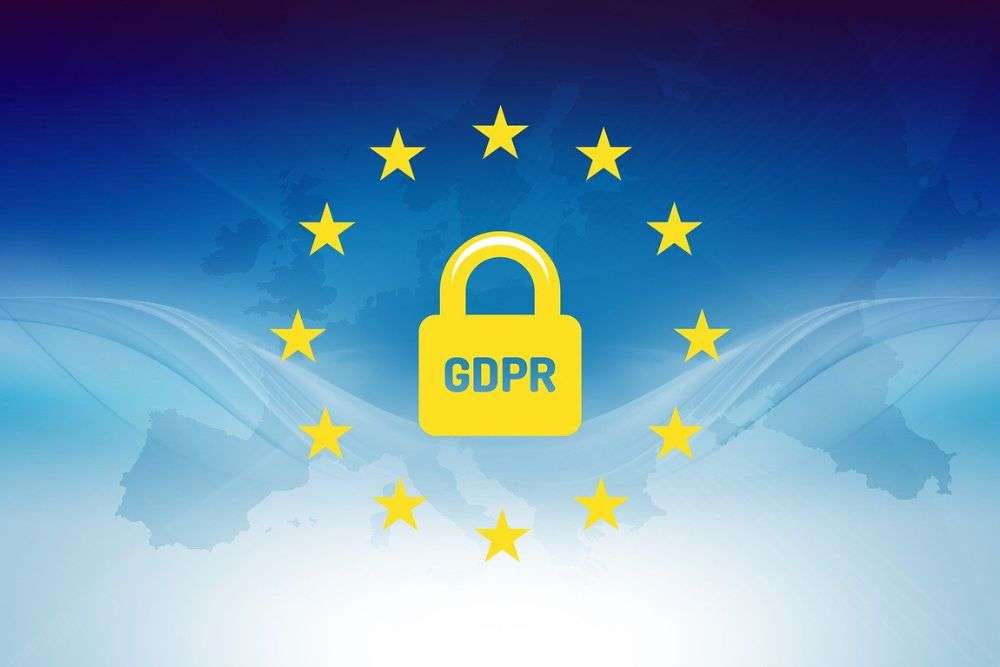Inclusive Hospitality Hiring Practices: Embrace diversity and inclusion in the hospitality industry, celebrating individuals from diverse backgrounds, cultures, races, genders, and abilities. Create a welcoming environment where everyone’s unique perspectives and talents are valued and respected.
1 The Importance of Embracing Diversity in Hospitality Hiring
Embracing diversity in hospitality hiring is not just a trend; it’s a strategic imperative. By actively seeking a diverse workforce, hospitality businesses can harness the power of different perspectives and experiences to foster creativity, innovation, and adaptability. This, in turn, enables them to better understand and cater to the diverse needs and preferences of their guests.
2 Benefits of Inclusive Hospitality Hiring Practices for Businesses
Inclusive hospitality hiring practices offer a multitude of advantages for hospitality businesses. When companies prioritize diversity and inclusivity, they create a harmonious work environment that boosts employee morale, engagement, and productivity. In turn, this positively impacts guest satisfaction, leading to increased customer loyalty and repeat business.
3 Understanding the Business Case for Diversity in Hospitality
A. Improving Guest Experience and Satisfaction
One of the key benefits of diversity in hospitality is its direct impact on guest experience and satisfaction. When a diverse team serves a diverse clientele, they bring a deeper understanding of cultural nuances, language preferences, and unique guest needs. This leads to more personalized and empathetic interactions, leaving guests with memorable and positive experiences.
B. Enhancing Brand Reputation and Customer Loyalty
A hospitality business that embraces diversity and inclusion projects an image of progressiveness, open-mindedness, and social responsibility. In today’s conscious consumer landscape, guests are more likely to support and remain loyal to brands that champion diversity. This not only enhances the company’s reputation but also generates positive word-of-mouth referrals and attracts like-minded talent.
C. Tapping into Diverse Markets and Cultural Insights
A diverse workforce can serve as a valuable asset for hospitality businesses seeking to expand into new markets. Team members with firsthand knowledge of various cultures can provide valuable insights, helping companies tailor their services and offerings to resonate with specific demographics. This adaptability allows businesses to tap into emerging markets successfully.
Transitioning to a more inclusive hospitality hiring approach requires deliberate and consistent efforts. Companies must challenge traditional hiring biases and establish recruitment strategies that actively seek diverse candidates. By doing so, they not only enrich their workforce but also build a stronger and more resilient foundation for long-term success. Through embracing diversity, the hospitality industry can create a welcoming and dynamic environment that enriches the lives of both employees and guests alike.
4 Overcoming Bias in the Hospitality Hiring Process
A. Recognizing and Addressing Unconscious Bias
Unconscious biases, often deeply ingrained in our psyche, can inadvertently influence hospitality hiring decisions. To combat this, hospitality businesses must first acknowledge the existence of these biases and commit to overcoming them. Implementing bias awareness training for hiring managers and recruiters can help raise consciousness about potential prejudices and foster a more open-minded approach to candidate evaluation.
B. Implementing Blind Hiring Techniques
Blind hospitality hiring is an effective strategy to mitigate bias during the initial stages of candidate evaluation. By removing personal information such as names, ages, and photos from resumes, hiring managers can focus solely on candidates’ qualifications and experiences. Additionally, using blind auditions or skills assessments can be instrumental in evaluating candidates based on merit rather than subjective factors.
C. Structured Interviewing to Minimize Bias
Structured interviews provide a standardized framework for evaluating candidates’ competencies and suitability for the role. By asking all applicants the same set of job-related questions, hospitality businesses can ensure fair and objective evaluations. Additionally, using competency-based questions can help uncover a candidate’s skills and experiences more effectively, leaving less room for bias to influence decision-making.
Are you Looking for Hospitality Staff?
We will provide you with the best Hospitality Staffing Solutions in Ireland. Please Fill the Form and we will get back to you ASAP.
5 Inclusive Job Descriptions and Requirements
A. Using Gender-Neutral and Inclusive Language
Crafting job descriptions with gender-neutral and inclusive language is essential to attract a diverse pool of candidates. Using terms like “they,” “person,” or “individual” instead of gender-specific pronouns helps create a more welcoming and inclusive environment. Additionally, avoiding words that may unconsciously favor one gender over another ensures that all qualified individuals feel encouraged to apply.
B. Identifying Essential Skills and Abilities
Rather than fixating on specific credentials or educational backgrounds, hospitality businesses should focus on identifying the essential skills and abilities required for the job. By doing so, they open up opportunities for candidates with diverse backgrounds and experiences, ensuring a more inclusive hiring process that values talent and potential over traditional qualifications.
C. Focusing on Transferable Skills and Experiences
An inclusive approach to job requirements involves valuing transferable skills and experiences that candidates may have acquired in different roles or industries. By broadening the scope of acceptable backgrounds, hospitality businesses can attract a more diverse range of candidates who can bring fresh perspectives and innovative solutions to the organization.
Transitioning to inclusive hiring practices requires ongoing commitment and willingness to challenge conventional norms. By recognizing and addressing unconscious biases, implementing blind hiring techniques, and adopting structured interviews, hospitality businesses can build a fair and equitable hiring process. Additionally, crafting job descriptions with gender-neutral language and focusing on essential skills and transferable experiences allows companies to tap into a larger talent pool, ensuring a workforce that thrives on diversity and inclusivity. Embracing these practices not only fosters a culture of equality but also drives innovation and success in the dynamic hospitality industry.
6 Building Inclusive Sourcing and Recruitment Strategies

A. Diversifying Recruitment Channels
To attract a diverse pool of candidates, hospitality businesses must go beyond traditional recruitment methods. Exploring various recruitment channels such as online job boards, social media platforms, and industry-specific forums can help reach candidates from diverse backgrounds and experiences. Additionally, attending job fairs and networking events can provide opportunities to connect with potential candidates who might not have considered hospitality roles before.
B. Establishing Partnerships with Diverse Organizations
Collaborating with organizations that champion diversity and inclusion can significantly enhance sourcing efforts. Partnering with diversity-focused nonprofits, minority associations, or veterans’ groups can facilitate access to talent from underrepresented communities. These partnerships not only expand the candidate pool but also demonstrate the company’s commitment to inclusivity.
C. Promoting Opportunities within Underrepresented Groups
Actively promoting career opportunities within underrepresented groups showcases a commitment to fostering diversity within the organization. Establishing mentorship programs and offering scholarships or internships to individuals from marginalized communities can create a pipeline of diverse talent. This proactive approach helps break down barriers and empowers candidates to pursue careers in the hospitality industry.
7 Creating a Diverse Interview Panel
A. The Importance of Diverse Interviewers
Having a diverse interview panel is crucial for evaluating candidates from different perspectives. Each interviewer brings unique insights and experiences, leading to a more comprehensive assessment of candidates’ suitability for the role. A diverse interview panel also sends a positive message to applicants, showing that the company values inclusivity and respects diverse viewpoints.
B. Training Interviewers on Inclusive Hospitality Hiring Practices
Training interviewers on inclusive hospitality hiring practices ensures fair and equitable evaluations. Workshops and educational sessions can help interviewers recognize unconscious biases and adopt a more open-minded approach to candidate assessment. Training can also focus on asking behavior-based questions that explore candidates’ competencies and potential rather than making assumptions based on appearance or background.
C. Collecting Feedback and Ensuring Fair Evaluation
To maintain transparency and accountability in the hiring process, it is essential to collect feedback from all interviewers. This feedback should be evaluated against specific criteria and calibrated to avoid potential biases. Ensuring consistent and objective evaluations help minimize discrepancies and promote fair decision-making based on candidates’ qualifications and skills.
By implementing inclusive sourcing and recruitment strategies, hospitality businesses can create a more diverse and talented workforce that reflects the richness of society. Diversifying recruitment channels, establishing partnerships with diverse organizations, and promoting opportunities within underrepresented groups expand the candidate pool and foster an inclusive work environment. Moreover, creating a diverse interview panel, training interviewers on inclusive practices, and collecting fair feedback enhance the objectivity of the hiring process. Together, these efforts contribute to building a strong and resilient hospitality team that thrives on diversity and drives success in a dynamic and ever-evolving industry.
8 Implementing Inclusive Onboarding and Training
A. Welcoming and Integrating New Hires from Diverse Backgrounds
The onboarding process plays a vital role in making new hires feel welcome and valued. Hospitality businesses can create an inclusive onboarding experience by assigning mentors or buddies to new employees. These mentors can provide guidance and support, helping new hires navigate their roles and become familiar with the company culture. Moreover, hosting orientation sessions that celebrate diversity and emphasize the organization’s commitment to inclusion sets a positive tone from the very beginning.
B. Tailoring Training Programs for Different Learning Styles
To ensure that all employees can thrive and reach their full potential, hospitality businesses should offer training programs that cater to various learning styles. Implementing a mix of hands-on workshops, e-learning modules, and group discussions accommodates diverse learning preferences. Additionally, providing opportunities for personalized skill development helps employees feel valued and empowered to excel in their roles.
C. Providing Resources for Continuous Learning and Development
Creating a culture of continuous learning is vital in fostering an inclusive work environment. Hospitality businesses can offer access to resources such as webinars, online courses, and industry conferences, allowing employees to expand their knowledge and stay updated with industry trends. By investing in their employees’ professional growth, companies demonstrate their commitment to nurturing talent from all backgrounds.
9 Nurturing an Inclusive Company Culture
A. Fostering a Sense of Belonging and Psychological Safety
An inclusive company culture is built on a foundation of belonging and psychological safety. Hospitality businesses can encourage open communication and active listening, ensuring that all employees’ voices are heard and respected. Establishing feedback mechanisms and anonymous suggestion platforms allows employees to express themselves without fear of judgment, fostering a sense of belonging and trust.
B. Celebrating Diversity and Cultural Traditions
Recognizing and celebrating the diversity of the workforce contributes to a more inclusive and engaging company culture. Holding multicultural events, diversity-themed celebrations, and cultural festivals helps employees learn from one another and appreciate different traditions. These celebrations not only promote cultural understanding but also create a positive and vibrant work atmosphere.
C. Employee Resource Groups and Diversity Initiatives
Encouraging the formation of employee resource groups (ERGs) can be a powerful way to foster inclusivity within the organization. ERGs provide a space for employees with shared backgrounds or experiences to connect, support each other, and advocate for positive change. Additionally, implementing diversity initiatives and affinity programs further demonstrate the company’s dedication to inclusivity and equality.
Creating an inclusive onboarding and training experience ensures that all employees feel welcome and supported from day one. Tailoring training programs for different learning styles and providing resources for continuous development empowers employees to thrive in their roles. Nurturing an inclusive company culture through a sense of belonging, celebrating diversity, and supporting employee resource groups cements the organization’s commitment to fostering an environment where every individual can flourish and contribute their unique talents to the success of the hospitality business.
Are you Looking for Hospitality Staff?
We will provide you with the best Hospitality Staffing Solutions in Ireland. Please Fill the Form and we will get back to you ASAP.
10 Addressing Challenges and Resistance
A. Overcoming Resistance from Existing Staff
Introducing diversity initiatives may encounter resistance from some existing staff members who fear change or perceive it as a threat to their positions. To overcome this resistance, hospitality businesses should prioritize transparent communication. Engaging in open dialogues about the benefits of diversity, dispelling myths, and addressing concerns can help ease apprehensions. Moreover, involving resistant staff in diversity training and workshops allows them to understand the positive impact of inclusive hospitality hiring and fosters a culture of acceptance.
B. Addressing Misconceptions about Diversity Hiring
Misconceptions about diversity hiring can hinder progress towards inclusivity. To address this, organizations need to educate their workforce about the rationale behind diversity initiatives. Emphasizing that diversity is not about preferential treatment but rather about creating a level playing field based on merit can help dispel misconceptions. Providing data-driven evidence of the business advantages of diversity reinforces the value of inclusive hospitality hiring practices.
C. Measuring and Communicating the Impact of Diversity
Hospitality businesses must assess and communicate the impact of diversity on company performance. Collecting data on key performance indicators such as guest satisfaction, employee engagement, and turnover rates can help gauge the effectiveness of diversity initiatives. Sharing success stories and showcasing the contributions of diverse employees further validates the importance of inclusivity and encourages a culture that values diversity.
11 Tracking and Evaluating Diversity Hiring Efforts

A. Setting Diversity Hiring Goals and Metrics
To ensure progress towards a more inclusive workforce, setting clear diversity hiring goals and metrics is essential. These goals can include increasing the percentage of underrepresented groups in the workforce or achieving a more balanced gender representation in leadership roles. Establishing measurable objectives provides direction and accountability for diversity efforts.
B. Regularly Assessing Progress and Making Improvements
Periodic assessments of diversity hiring efforts enable businesses to identify strengths, weaknesses, and areas for improvement. Conducting regular reviews of recruitment practices and refining them based on feedback and insights promotes continuous growth. Embracing a culture of learning from both successes and challenges cultivates adaptability and resilience in the pursuit of diversity and inclusion.
C. Celebrating Successes and Recognizing Efforts
Celebrating achievements in diversity hiring motivates both employees and leadership to remain committed to inclusivity. Acknowledging individuals and teams who contribute to diversity initiatives fosters a sense of pride and ownership. Publicly recognizing efforts and sharing success stories not only boosts morale but also reinforces the organization’s dedication to creating a diverse and welcoming workplace.
By addressing challenges and resistance, hospitality businesses can build a culture that embraces diversity and creates a sense of belonging for all employees. Tracking and evaluating diversity hiring efforts enable organizations to measure their progress and continuously improve their inclusive practices. Together, these efforts contribute to building a resilient and progressive hospitality industry that celebrates the diverse talents and perspectives of its workforce.
If you are looking to upgrade your Hospitality skills, you may check our Online Certification courses here.
Conclusion
In conclusion, creating a diverse and inclusive hospitality team is not just a moral imperative; it is a strategic business advantage. A workforce that mirrors the diverse backgrounds and experiences of its guests can better understand their needs and preferences, leading to enhanced guest satisfaction and loyalty. Embracing diversity not only enriches the workplace culture but also drives innovation, creativity, and adaptability, positioning hospitality businesses for success in an ever-changing global landscape.
- Top Trends in Hospitality Staffing and Talent Management
- The Role of Technology in Modern Hospitality Staffing Solutions
- Professional Tips And Solutions – HR Challenges In The Hospitality Sector
- Strategies for Building a High-Performing Hospitality Team
- The Importance of Training and Development in the Hospitality Industry
- Maximizing Efficiency – How Temporary Staffing Can Benefit Your Business
- 5 Best Key Benefits of Outsourcing Hospitality Staffing Needs
- The Ultimate Guide to Hospitality Staffing Solutions: Strategies for Building a High-Performing Team
Frequently Asked Questions (FAQs)
What is the inclusive hiring approach?
The inclusive hiring approach focuses on actively seeking diverse candidates, regardless of their background or characteristics, to create a workforce that reflects a range of perspectives and experiences.
How do you do inclusive hiring practices?
Inclusive hiring practices involve using blind hiring techniques, crafting gender-neutral job descriptions, establishing partnerships with diverse organizations, and conducting structured interviews to ensure fair and unbiased evaluations.
What is inclusion in the hospitality industry?
Inclusion in the hospitality industry refers to creating an environment where employees and guests from diverse backgrounds feel valued, respected, and empowered to contribute their unique perspectives and talents.
What can we do to make your recruitment process more inclusive and accessible?
To make the recruitment process more inclusive and accessible, consider providing reasonable accommodations for candidates with disabilities, using inclusive language in job descriptions, offering diverse interview panels, and assessing candidates based on skills and competencies.
What is inclusive interviewing?
Inclusive interviewing involves using standardized questions and evaluating candidates based on their skills and experiences rather than personal characteristics. It also includes having a diverse interview panel to gain multiple perspectives on candidates.
How can employees be more inclusive?
Employees can be more inclusive by actively listening to diverse viewpoints, respecting different cultural practices, celebrating diversity, and participating in diversity training to enhance their awareness and understanding.
What are the 5 benefits of an inclusive workplace?
An inclusive workplace fosters higher employee morale, increased creativity and innovation, improved team collaboration, better problem-solving, and enhanced productivity due to a diverse range of perspectives and experiences.
What top 3 actions would create a more inclusive culture at work?
Creating a more inclusive culture at work involves promoting open communication, implementing diversity training, and recognizing and celebrating the contributions of individuals from diverse backgrounds.
How do you create a welcoming and inclusive environment?
To create a welcoming and inclusive environment, prioritize open communication, celebrate diversity and cultural traditions, provide learning and growth opportunities, and foster a sense of belonging and psychological safety for all employees.













